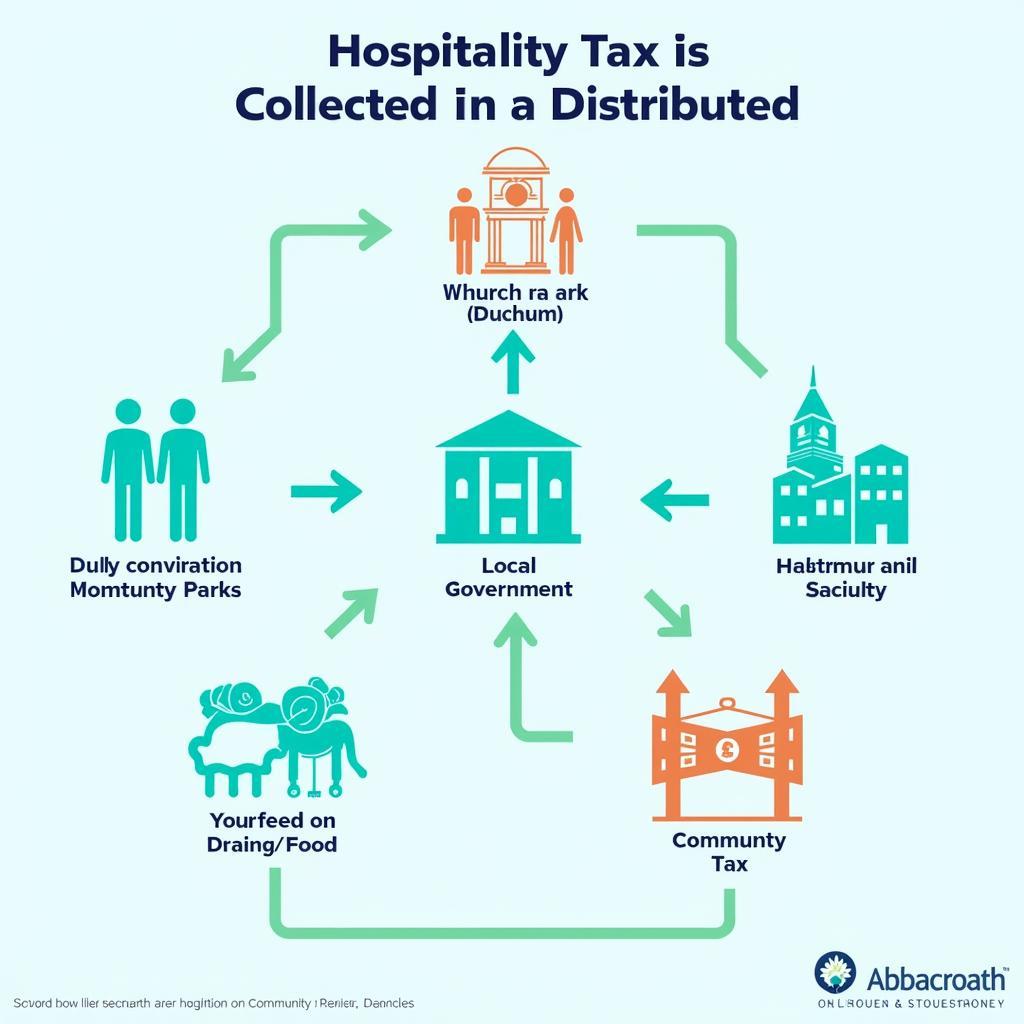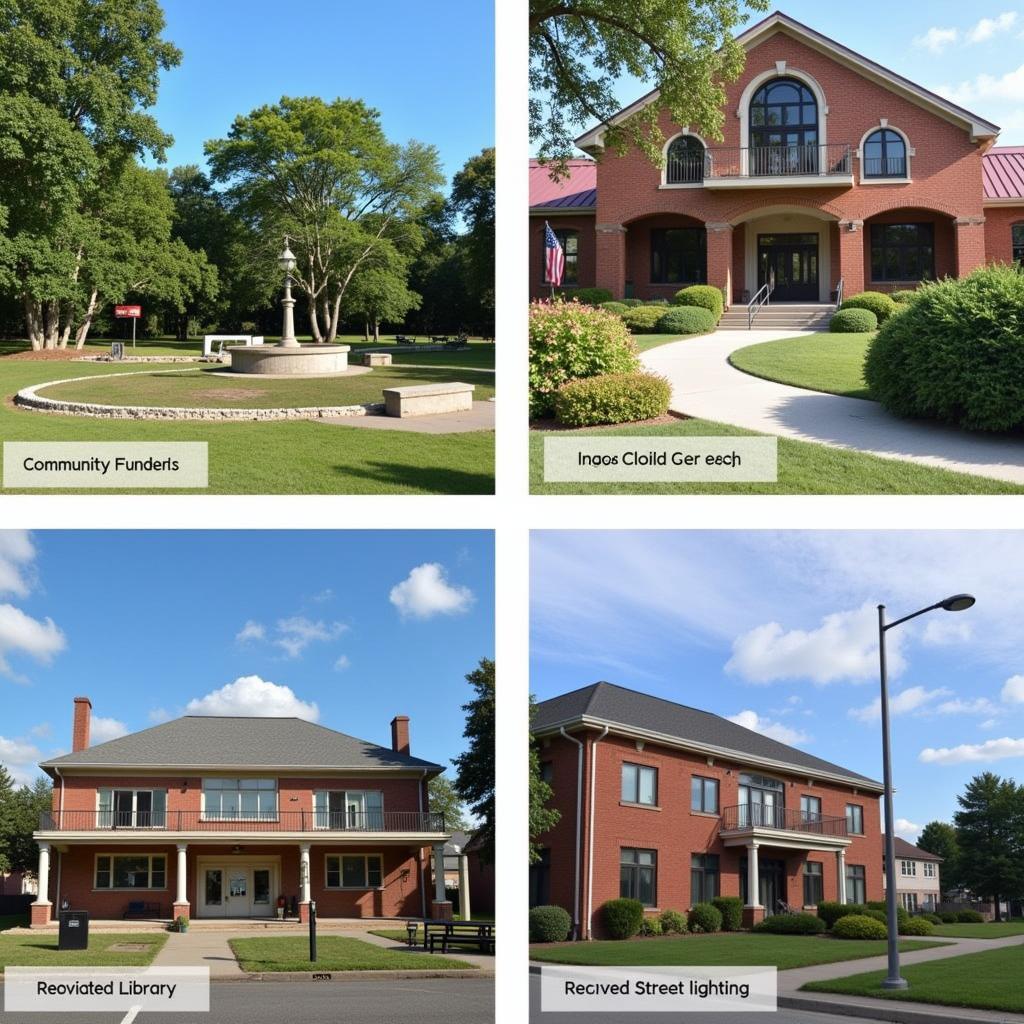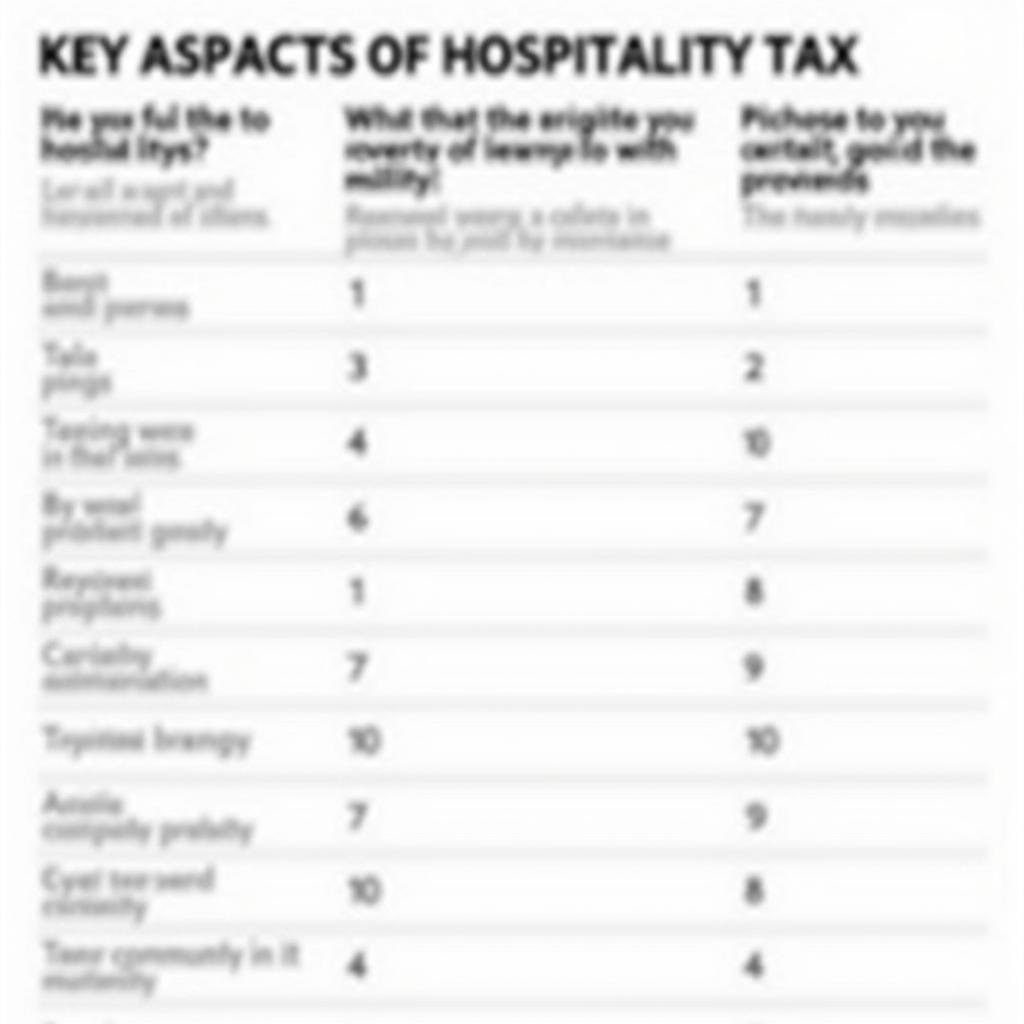Hospitality tax is a levy imposed on specific services and goods within the hospitality industry, such as hotels, restaurants, and entertainment venues. It’s a common way for local governments to generate revenue to fund services that benefit both residents and visitors. This tax is sometimes referred to as a tourism tax, hotel tax, or occupancy tax. Let’s dive deeper into understanding this crucial aspect of the hospitality sector.
Traveling for leisure or business often involves encountering various taxes and fees. Understanding these charges, including hospitality tax, can help you budget effectively and avoid surprises. For example, if you’re considering applying for LPN positions in hospitals, understanding the local tax structure where the hospital is located can be beneficial for your overall financial planning. This article will unravel the complexities of hospitality tax, providing a clear picture of what it is, how it works, and its impact on both consumers and businesses.
Understanding the Basics of Hospitality Tax
Hospitality tax is typically a percentage added to the cost of services or goods provided by businesses within the hospitality sector. The specific percentage and what services are taxed vary depending on the local jurisdiction. The revenue generated from these taxes often goes towards funding local services, such as infrastructure improvements, tourism marketing, and public safety.
What are some common examples of services subject to hospitality tax? Hotel accommodations are a prime example. Restaurant bills and bar tabs often include a hospitality tax component. Even entertainment venues like theaters or concert halls might add this tax to ticket prices. Sometimes, rental car services are also subject to hospitality tax. It’s essential to understand the specific regulations in your destination to accurately estimate your total expenses.
 Hospitality Tax Explained
Hospitality Tax Explained
Who Benefits from Hospitality Tax Revenue?
The primary beneficiaries of hospitality tax revenue are the local communities where the tax is collected. These funds are often earmarked for specific projects and services that benefit both residents and visitors.
- Infrastructure Development: Hospitality tax revenue can be used to fund improvements to roads, bridges, public transportation, and other vital infrastructure projects.
- Tourism Promotion: Marketing campaigns to attract more tourists often rely on hospitality tax revenue. This can include advertising, event sponsorships, and visitor center operations.
- Public Safety: Funding for police and fire services, as well as emergency medical services, can be supplemented by hospitality tax revenue.
- Parks and Recreation: The development and maintenance of parks, recreational facilities, and cultural attractions can benefit from hospitality tax funds.
 Benefits of Hospitality Tax
Benefits of Hospitality Tax
Finding LPN hospital jobs near me can be easier when you understand the local economy and the role of taxes like the hospitality tax in supporting community development. Knowing how these taxes contribute to the local area can give you a broader perspective on the community you might be joining.
How is Hospitality Tax Calculated and Collected?
Hospitality tax is usually calculated as a percentage of the total cost of the service or good. For instance, if a hotel room costs $100 per night and the local hospitality tax is 5%, the tax would be $5, bringing the total cost to $105.
The collection process is generally straightforward. Businesses within the hospitality sector are responsible for collecting the tax from customers and remitting it to the appropriate local government agency. This process is often automated through point-of-sale systems.
“Understanding the nuances of hospitality tax is crucial for both consumers and businesses,” says John Smith, a leading hospitality consultant. “Transparency in how the tax is calculated and used fosters trust and ensures responsible financial management within the industry.”
The Impact of Hospitality Tax on Businesses
While hospitality tax can generate significant revenue for local communities, it’s essential to consider its potential impact on businesses. A high hospitality tax rate can make a destination less competitive, potentially deterring tourists and impacting business profitability. Finding the right balance between generating revenue and maintaining affordability is a key challenge for policymakers.
Opportunities in healthcare, such as those at Children’s Hospital Omaha Nebraska jobs, can be influenced by the overall economic environment, including local tax policies. While hospitality tax might not directly affect hospital jobs, it contributes to the local economy which can influence overall employment opportunities.
Frequently Asked Questions (FAQs)
- What is the difference between hospitality tax and sales tax? Hospitality tax is specifically levied on services and goods within the hospitality industry, while sales tax applies to a broader range of purchases.
- Who sets the hospitality tax rate? Local governments, such as cities or counties, typically set the hospitality tax rate.
- Are all hospitality businesses required to collect this tax? Most hospitality businesses are required to collect this tax, but there may be some exemptions depending on the specific regulations of the local jurisdiction.
- How can I find out the hospitality tax rate in a specific location? You can usually find this information on the local government’s website or by contacting the relevant tourism authority.
- What happens if a business doesn’t collect the hospitality tax? Businesses that fail to collect and remit the tax can face penalties and fines.
Conclusion
Hospitality tax plays a significant role in funding essential local services and promoting tourism. Understanding what hospitality tax is and how it works is crucial for both consumers and businesses. By grasping the intricacies of this tax, you can make informed decisions about your travel budget and better appreciate the impact it has on the communities you visit. If you are considering a career in healthcare, perhaps exploring Edwards Hospital jobs or Vassar Hospital Poughkeepsie NY jobs, understanding local taxes can contribute to a more complete picture of the community.
“Transparency and responsible use of hospitality tax funds are vital for ensuring the long-term health of the tourism industry,” adds Jane Doe, a seasoned hotel manager. “This benefits not only the local community but also the businesses that contribute to its vibrancy.”
 Hospitality Tax Summary
Hospitality Tax Summary
Considering a career in healthcare and want to learn more about different roles? Explore LPN positions in hospitals.
For further assistance, please contact us at Phone Number: 02437655121, Email: [email protected] or visit our address: No. 298 Cau Dien Street, Minh Khai, Bac Tu Liem, Hanoi, Vietnam. We have a 24/7 customer service team.